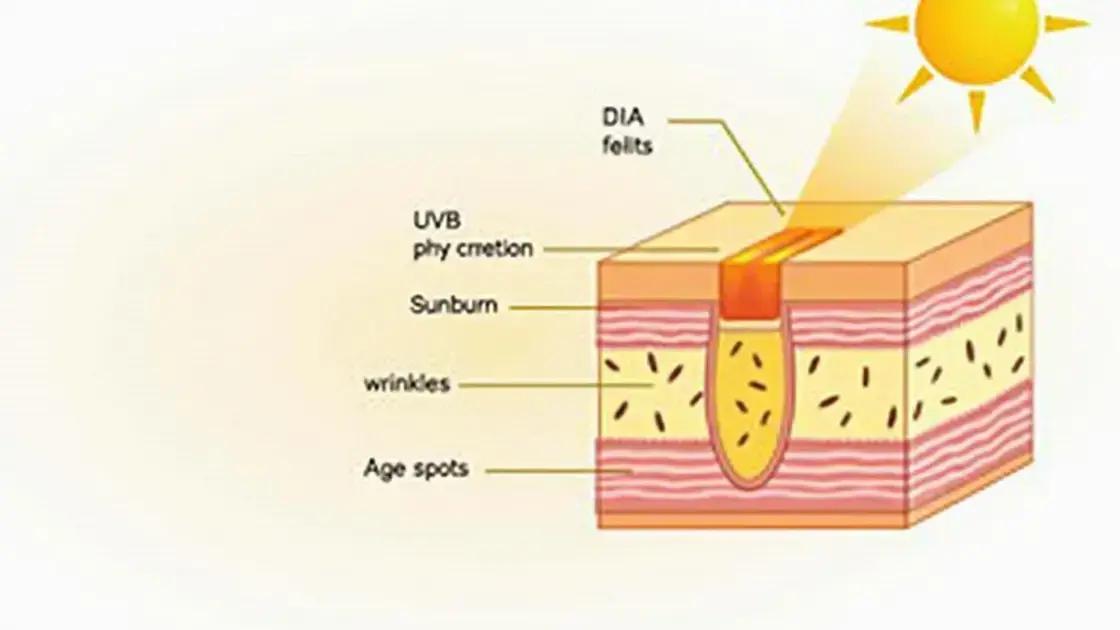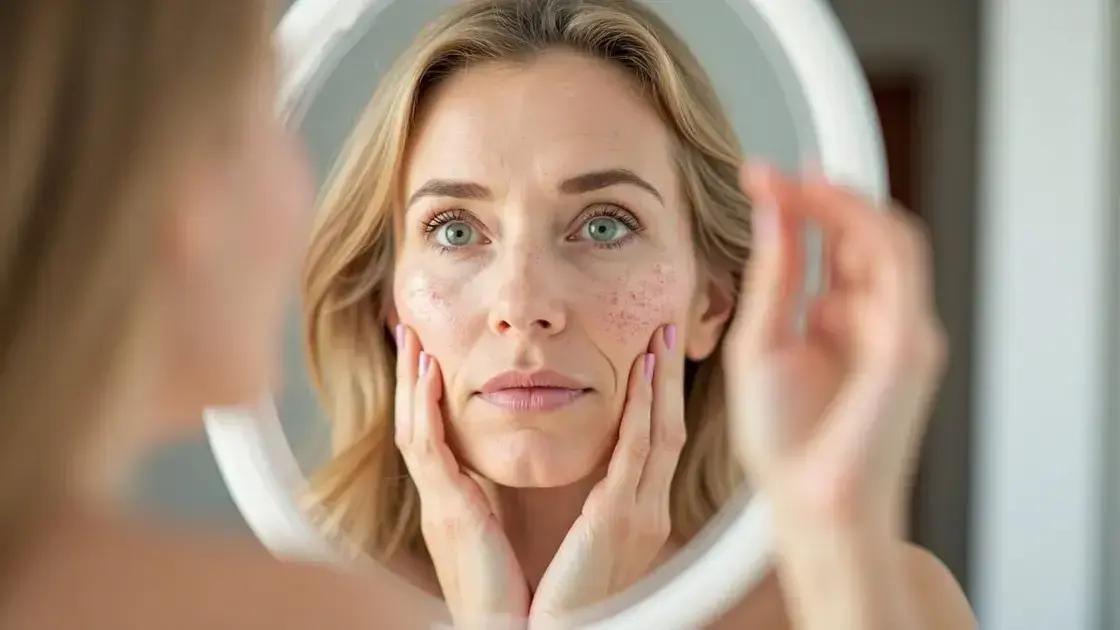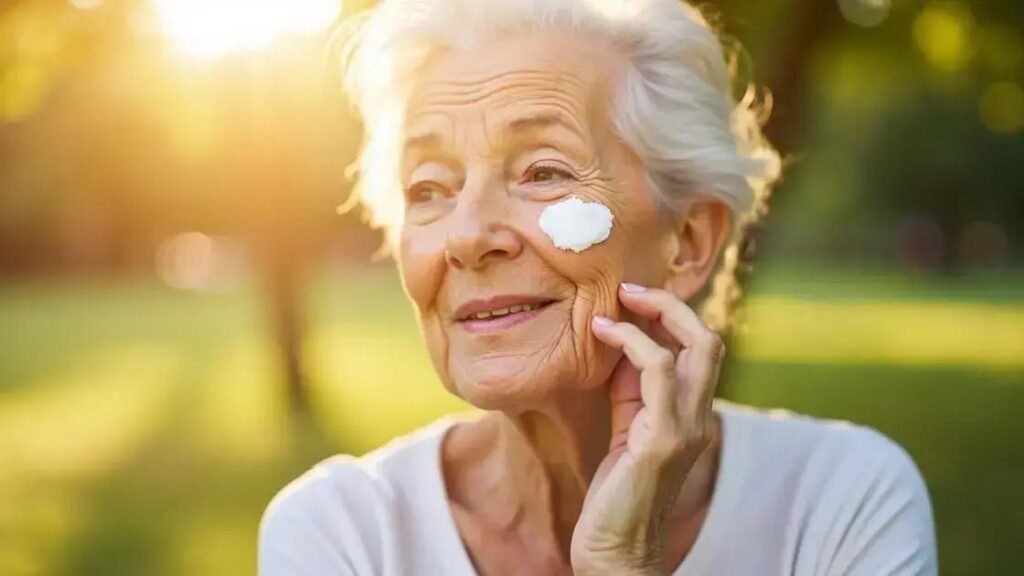The importance of sun protection for aging skin cannot be underestimated; effective techniques include using daily broad-spectrum sunscreen, seeking shade, wearing protective clothing, and utilizing natural remedies like aloe vera and coconut oil to maintain skin health and combat signs of aging.
As we age, our skin becomes more susceptible to damage from the sun. The importance of sun protection for aging skin cannot be overstated, as harmful UV rays can accelerate the aging process and lead to a variety of skin concerns. In this article, we will delve into the risks associated with sun exposure, explore the signs of aging skin, and discuss effective techniques to protect your skin and maintain its youthful appearance.
Understanding Sun Damage

Understanding sun damage is crucial for anyone looking to maintain healthy skin as they age. When exposed to the sun, our skin absorbs harmful ultraviolet (UV) rays, which can lead to both immediate and long-term effects. These rays can cause burns, pigmentation changes, and even accelerate the aging process by breaking down collagen and elastin.
Types of Sun Rays
There are two main types of UV rays that affect our skin:
- UVA rays: These rays penetrate deeply into the skin and contribute to premature aging and skin cancer.
- UVB rays: These rays cause sunburn and play a significant role in developing skin cancer.
The Immediate Effects of Sun Exposure
When you spend too much time in the sun without protection, the immediate effects can include:
- Sunburn: Redness, pain, and peeling skin can occur after excessive sun exposure.
- Heat Rash: This rash can develop from clogged pores and is often uncomfortable.
Long-Term Effects of Sun Damage
Over time, repeated exposure to UV rays can lead to significant skin issues:
- Fine Lines and Wrinkles: Sun exposure damages collagen and elastin, leading to a loss of skin elasticity.
- Age Spots: Also known as liver spots, these are flat, brown spots that appear on sun-exposed areas of the skin.
- Skin Cancer: The most serious consequence of sun damage can be the development of skin cancers, including melanoma.
By understanding the impact of sun damage on aging skin, you can take proactive measures to protect your skin and maintain a youthful appearance.
Signs of Aging Skin

Recognizing the signs of aging skin is essential for anyone who wants to maintain a youthful appearance. As the years go by, our skin undergoes various changes influenced by factors like sun exposure, genetics, and lifestyle choices. Here are some common signs to watch for:
1. Fine Lines and Wrinkles
One of the most noticeable signs of aging skin is the development of fine lines and wrinkles. These usually appear around the eyes, mouth, and forehead. They often begin as small creases and become more pronounced over time due to the loss of collagen.
2. Dryness and Rough Texture
Aging skin tends to become drier and can lose its natural smoothness. This change occurs because the skin produces less oil and moisture. Dry patches and a rough texture can make your complexion look dull.
3. Age Spots and Discoloration
Frequent sun exposure can lead to age spots, which are flat brown spots that appear on sun-exposed areas like the face, hands, and shoulders. These spots are a sign of accumulated sun damage and can vary in size.
4. Sagging Skin
As the skin loses elasticity, it may begin to sag, particularly around the jawline and neck. This sagging can create a tired or older appearance and is often associated with aging.
5. Thinning Skin
With age, skin can become thinner, leading to a more fragile texture. Thinning skin is more prone to bruising and may show underlying veins more easily.
6. Enlarged Pores
As skin loses its firmness, pores can appear larger and more noticeable. This change can be exacerbated by sun damage and the loss of elasticity in the skin.
Understanding these signs of aging skin is the first step towards effective skincare and protection. Taking action to protect your skin from the sun can greatly reduce the appearance of these signs.
Best Sun Protection Techniques

Protecting your skin from the sun is essential, especially as you age. Here are some of the best sun protection techniques you can use:
1. Use Sunscreen Daily
Applying broad-spectrum sunscreen with an SPF of at least 30 is key. Make sure to use it every day, even when it’s cloudy. Reapply every two hours, or more often if swimming or sweating.
2. Seek Shade
Staying in the shade during peak sun hours, typically between 10 AM and 4 PM, can significantly reduce your risk of sun damage. Use umbrellas, trees, or canopies when outdoors.
3. Wear Protective Clothing
Choose clothing made of tightly woven fabric to cover your skin. Look for UPF-rated clothing specifically designed for sun protection. Wear wide-brimmed hats and sunglasses to shield your face and eyes.
4. Avoid Tanning Beds
Tanning beds can expose your skin to UV radiation just as much as the sun. Avoid using them to reduce your risk of skin damage and premature aging.
5. Stay Hydrated
Drinking plenty of water helps keep your skin hydrated. Hydrated skin is better equipped to heal and protect itself from the sun’s harmful effects.
6. Regular Skin Checks
Regularly check your skin for any changes such as new moles or changes to existing ones. Early detection of skin issues can lead to better outcomes, especially with skin cancers.
By following these best sun protection techniques, you can maintain healthier skin and prevent the signs of aging from sun damage.
Natural Remedies for Skin Health

Using natural remedies for skin health is a great way to support your skin’s appearance and overall wellness. Here are some effective remedies you can try:
1. Aloe Vera
Aloe vera is known for its soothing properties. Apply fresh aloe vera gel on your skin to hydrate, reduce inflammation, and promote healing. It’s particularly effective for sunburned skin.
2. Coconut Oil
Coconut oil is a natural moisturizer that can help keep your skin hydrated. It is rich in antioxidants, which can help fight free radicals and reduce signs of aging. Apply it directly to your skin or use it as a makeup remover.
3. Green Tea
Green tea is loaded with antioxidants. Drinking green tea or applying cooled green tea bags to your skin can help reduce redness and improve overall skin tone. It may also protect against sun damage.
4. Honey
Honey has natural antibacterial properties and can be used as a gentle cleanser. It also helps to moisturize and can be applied directly to your skin as a mask for smoother and brighter skin.
5. Oatmeal
Oatmeal can soothe irritated skin, especially conditions like eczema. Mixing oatmeal with water to create a paste can be applied to the skin for relief and moisture.
6. Avocado
Avocado is packed with healthy fats and vitamins. Apply mashed avocado to your skin for deep moisture. It can help improve skin elasticity and hydrate dry skin.
Incorporating these natural remedies for skin health into your routine can significantly enhance your skin’s resilience and appearance.
Taking Charge of Your Skin Health
Understanding the importance of sun protection for aging skin is essential for maintaining a youthful complexion. By recognizing sun damage and its signs, you can implement effective strategies such as daily sunscreen use and protective clothing.
Additionally, embracing natural remedies for skin health can enhance your skin’s resilience. With options like aloe vera, coconut oil, and green tea, you have powerful tools at your disposal to combat aging and nourish your skin.
Incorporating these practices into your daily routine will not only help you protect against the sun’s harmful effects but also promote overall skin wellness.
Stay proactive in your skincare journey to enjoy healthy, vibrant skin for years to come.
FAQ – Frequently Asked Questions about Sun Protection and Aging Skin
Why is sun protection important for aging skin?
Sun protection is essential for aging skin as it helps prevent further damage, reduces the appearance of wrinkles, and lowers the risk of skin cancer.
What are the best sun protection techniques?
The best sun protection techniques include using broad-spectrum sunscreen daily, seeking shade during peak hours, wearing protective clothing, and avoiding tanning beds.
What are natural remedies for skin health?
Natural remedies for skin health include aloe vera, coconut oil, green tea, honey, oatmeal, and avocado. These can help nourish and protect your skin.
How often should I apply sunscreen?
You should apply sunscreen every day and reapply it every two hours, or more often if you are swimming or sweating.
What are the signs of aging skin I should watch for?
Common signs of aging skin include fine lines and wrinkles, dry and rough texture, age spots, sagging, thinning skin, and enlarged pores.
Can I still get sunburned on cloudy days?
Yes, you can still get sunburned on cloudy days since UV rays can penetrate through clouds. It is important to wear protection even when it’s overcast.













